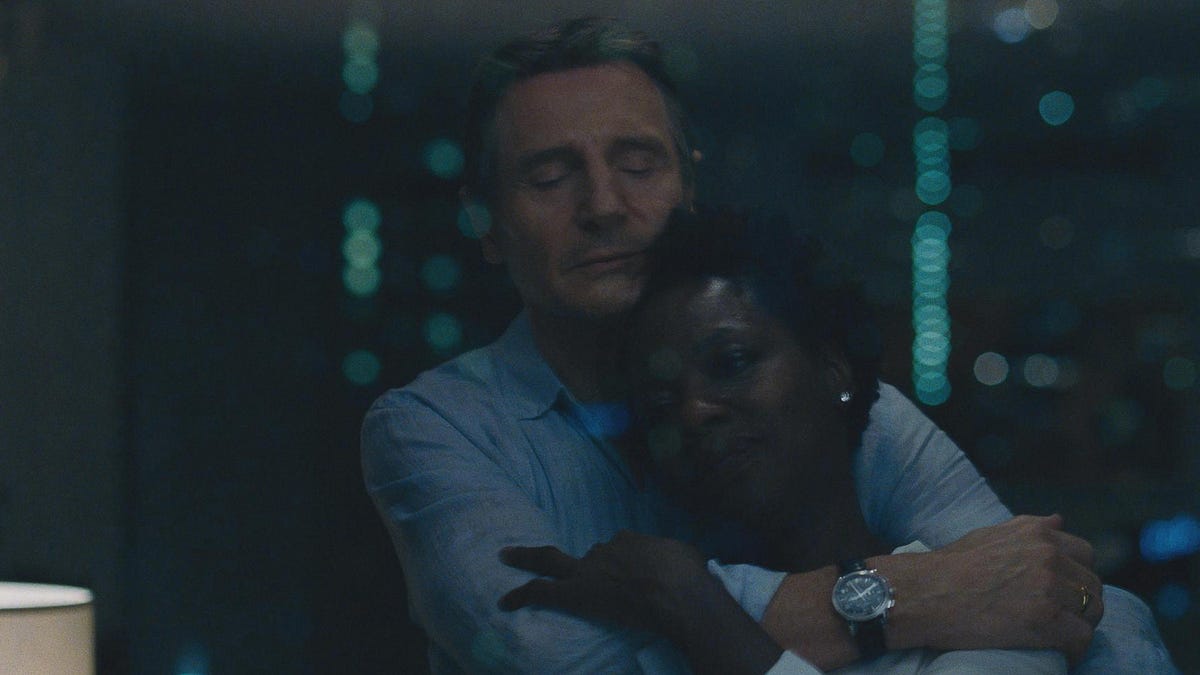Widows review: Someone stole this heist thriller's thrills
Steve McQueen's heist thriller is masterfully assured and layered, but packs in too much at too slow a pace.

Widows is a heist movie, and so much more.
Opening in the US this Friday, Nov. 16, this tense new film from 12 Years a Slave director Steve McQueen comes with a slam-bang hook: when a bunch of armed robbers get dead, their widowed wives pull off the next job. But this pulpy tale is also packed with powerhouse performances, twisting storylines and layers of thematic nuance, making it much more than your average heist thriller.
Unfortunately, Widows doesn't quite add up to the sum of its parts.
The first thing to salivate over is the list of names involved. McQueen worked on the script with Gone Girl author Gillian Flynn, based on a TV series and novel by British crime queen Lynda LaPlante. Then there's the stellar cast list: Viola Davis, Michelle Rodriguez, Liam Neeson, Colin Farrell, Daniel Kaluuya, Elizabeth Debicki, Robert Duvall... It's a mark of quality that even the minor characters are played by the well-regarded likes of Carrie Coon from Fargo and Jon Bernthal of The Walking Dead and The Punisher.
Then there's the grabby concept. But Ocean's 8 this ain't: the heist is just one strand of a multi-layered exploration of greed, injustice, race and power that snakes from the street up through the corridors of power.
Heist movies have clearly-defined structures: recruiting the gang, planning the job, the job goes wrong -- you know the drill. Widows flirts with that structure, but adds smart twists. For example, the characters are dispatched on intel-gathering sub-missions that in many crime movies serve as time-filling diversions, but in Widows these side quests send the characters spiralling in unexpected directions. It's like the film sets out to be a heist thriller but life gets in the way.
McQueen's take on this pulpy tale is as tough and assured as its lead characters. Viola Davis is the forceful widow left holding the bag on a debt she didn't even know about after the fiery death of her husband, played by Liam Neeson. It's a dour but commanding turn from Davis, made all the more compelling by the fact that when she approaches her fellow widows about joining the robbery, she ain't asking.
Debicki, Rodriguez and Tony Award-winning theatre actor Cynthia Erivo are great as the budding robbers finally owning their own lives. Widows simmers with righteous feminist anger as these nuanced and multi-faceted women fight back against predatory criminals, corrupt politicians and self-interested men at every turn.
Spa-ing partners Michelle Rodriguez, Viola Davis and Elizabeth Debicki in Widows.
The widows are pressured by the political machinations of an assortment of rapacious men. The serpentine Kaluuya and looming, heavy-lidded Brian Tyree Henry are drug dealers looking to grab a new level of power by running for office. They face the sharp-suited scion of an entrenched political dynasty, played by Colin Farrell, who's affronted by the thought of his black rivals winning power even though he doesn't particularly want the job. His most toxic impulses are beaten into him by his grasping politician father, played by Robert Duvall, who doesn't try to hide his disdain for the women and people of colour rising to take his place.
This storyline effortlessly entwines street-level violence with the cunning manoeuvring in offices and members' clubs, as influential churchmen and businessmen barter their favour for handfuls of silver. Exposing the conjoined corruption at every level of society, Widows also touches on police brutality, election manipulation and sexual politics. Many of those themes of inequality are summed up in a bravura single shot showing a bitter, complaining Colin Farrell slink away from a self-serving public appearance in a run-down, predominantly black neighbourhood and jump in his limo, which glides around a couple of corners to deposit him at his lavish -- and well-guarded -- mansion a few streets and an entire world away.
Powerful and compelling as this is, it splits the film's focus somewhat. Even though there's so much going on, the film unfolds in a measured, unhurried rhythm -- right until a conclusion that rushes to tie up the multiple storylines. Lynda LaPlante's story began life as a TV miniseries in 1983, and the many strands of this new version might have benefited from the extra legroom of a TV show. As a movie, it's multi-faceted to the point of being overcrowded.
The austere, studied visual aesthetic gives Widows a real weight, but that formal deliberation doesn't quite match with a battery of increasingly soapy twists. Obviously this isn't meant to be an Ocean's-style caper, but the glacial pace might leave you wanting a bit more heist and a bit less ice.
Widows sets out to steal your breath. It just divides the loot too thinly.
Widows is released in the UK on 6 November and in the US on 16 November.
Movie Magic: The secrets behind the scenes of your favorite films and filmmakers.
Solving for XX: The tech industry seeks to overcome outdated ideas about "women in tech."

